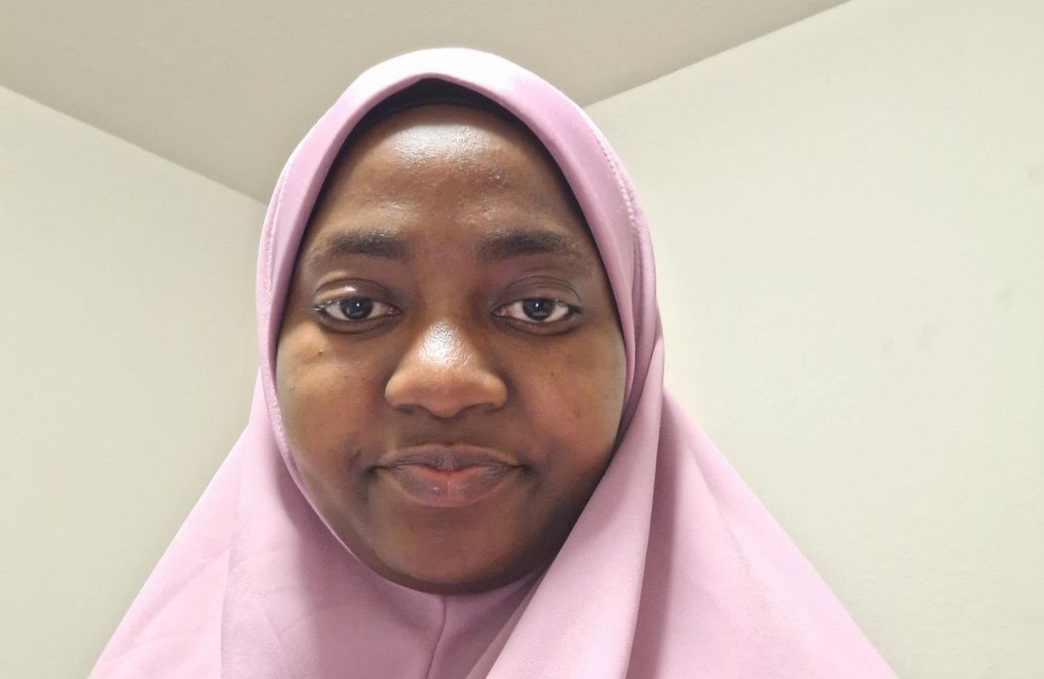 In the highly competitive biomedical research field, Hafsat Alabere emerges as an extraordinary scholar whose innovative work spans three continents and multiple disease frontiers. Her exceptional ability to seamlessly integrate computational biology, molecular research, and therapeutic discovery is revolutionizing our approach to some of medicine’s most challenging diseases.
In the highly competitive biomedical research field, Hafsat Alabere emerges as an extraordinary scholar whose innovative work spans three continents and multiple disease frontiers. Her exceptional ability to seamlessly integrate computational biology, molecular research, and therapeutic discovery is revolutionizing our approach to some of medicine’s most challenging diseases.
At West Virginia University’s School of Medicine, Hafsat is spearheading groundbreaking research in RNA therapeutics for diabetic cardiomyopathy. Her innovative work investigating non-coding RNA’s role in cardiac mitochondrial function represents a paradigm shift in understanding heart complications in diabetic patients. This research could transform treatment strategies for millions suffering from diabetes-related heart conditions, offering hope where traditional approaches have fallen short.
Hafsat’s exceptional scientific acumen is particularly evident in her innovative drug discovery work. Her research identifying novel SARS-CoV-2 main protease inhibitors, published in Chemical Papers, demonstrates the sophisticated use of computational approaches in viral therapeutics.
Similarly, her work on HSP27 inhibitors, featured in the prestigious journal, Cells, reveals promising new directions in cancer treatment, showcasing her ability to tackle complex diseases through advanced molecular modelling.
Traditional approaches often limit our perspective,” Hafsat notes. “By combining computational methods with experimental validation, we can accelerate the discovery of effective therapeutics.” This philosophy has driven her remarkable achievements across multiple research domains.
During her tenure at Aberystwyth University, Hafsat developed an innovative multiplex PCR protocol that could revolutionize malaria diagnosis. This breakthrough, presented at the 2023 British Society for Parasitology Spring Conference, demonstrates her commitment to creating practical solutions for global health challenges. The protocol’s potential impact on malaria detection in resource-limited settings exemplifies her ability to bridge sophisticated science with real-world applications.
Her exceptional research portfolio, comprising high-impact peer-reviewed publications, spans an impressive range of critical medical challenges. From pharmaceutical quality control studies in Nigeria to advanced computational drug design for cancer treatment, each publication reflects her unique ability to identify and solve complex medical problems through innovative approaches. Hafsat’s mastery of both wet lab techniques and computational methods sets her apart in the field, allowing her to approach research questions from multiple angles and develop more comprehensive solutions.
The significance of her work has drawn international recognition, earning her prestigious awards, including the Commonwealth Shared Scholarship, the AberDoc Scholarship, and her selection as a SHIFT Program Scholar at Meharry Medical College, United States. These accolades reflect not just her research excellence but her ability to transform medical science. Her current focus on mitochondrial therapeutics in diabetic heart disease represents the culmination of her diverse expertise. By applying her exceptional understanding of molecular mechanisms and therapeutic design, she is developing novel approaches to treat this devastating condition. Her work promises to open new avenues for treatment that could benefit patients globally.
She recounts, “My journey has been enriching, with exposure to cutting-edge research and collaborative opportunities.” Hafsat’s research journey, from pioneering work in Nigeria to groundbreaking discoveries in the United Kingdom and the United States, exemplifies the power of exceptional scientific talent combined with innovative thinking. Her ability to successfully navigate and excel in multiple research domains while maintaining extraordinary quality in each area marks her as a true pioneer in biomedical research.
As she continues her doctoral research, Hafsat’s exceptional scientific mind continues to push boundaries and challenge conventional approaches to medical research. Her work not only advances our understanding of critical diseases but also demonstrates how exceptional talent, when combined with innovative thinking and dedication, can transform the landscape of medical science. Through her remarkable contributions across multiple fields, Hafsat stands as a testament to the power of exceptional scientific ability in advancing global health solutions, promising continued breakthroughs in the understanding and treatment of major diseases.






